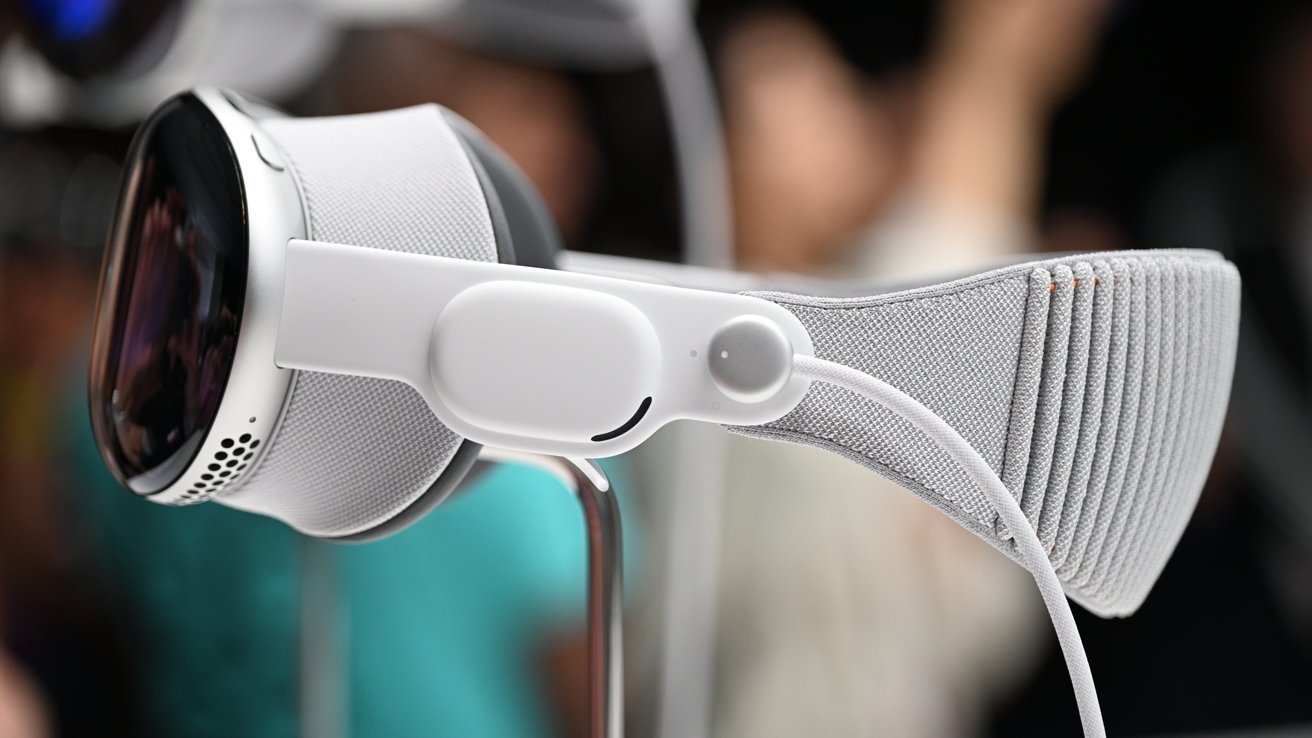Apple has a unique working arrangement with the Vision Pro team
Apple is handling the team working on the Apple Vision Pro very differently to the rest of its business, with a dedicated division working on it rather than relying on the work of multiple separate departments.

Apple Vision Pro
Apple's development of products often uses a diverse range of employees across all of its departments working together on new hardware and features. While this is true of the iPhone, iPad, and other products, it's handling the Apple Vision Pro very differently.
In an outline of the Apple Vision Pro's development, Mark Gurman writes in the Bloomberg "Power On" newsletter about Apple's shift away from its earlier product development structure in the late 1990s in favor of a "functional" management structure, following the return of Steve Jobs.
This meant that, rather than having a dedicated department for specific products like iPhone or Mac, the departments were organized by job roles. Separate teams such as software engineering, hardware development, and others all contributed to new products across the entire catalog, not just one specific item.
For the Apple Vision Pro, it's seemingly a return to product-specific departments, in a way. Developed under the Mike Rockwell-run Technology Development Group from 2015, the team has since been renamed the Vision Products Group.
Instead of working with other teams more directly, the VPG instead operates as a mini version of Apple's managerial structure, with smaller versions of software, hardware engineering, and other teams within it. Other department teams, who all report to Rockwell, include strategy, computer vision, content, app development, and project management.
While VPG does keep most of its work within the group itself, it does still tap the larger out-of-group teams. This included working with design and operations teams, the chip unit for its processors, and frameworks from software engineering group teams.
Sticking together
After its announcement, members of VPG thought the team would be broken up and absorbed into the existing management structure, much like other Apple product families.
However, the name change for the group apparently indicates that won't happen for a while. The plural of "Projects" certainly puts forward the idea that multiple products will stem from it, such as future cheaper headset models.
Gurman reckons the move is because a smaller group can move more quickly to develop a product while maintaining secrecy. The use of a core team of specialists in a dedicated unit for a complex product may also be a necessity for Apple to successfully develop the product.
On a more mercenary level, Apple may also be trying to keep the VPG separate until it becomes a big enough category for it to perform the disbanding and absorption into other teams. Doing so too early could force the existing teams to provide more resources to the headsets, which could take away those same resources from its existing revenue-generating products.
Gurman does point out that this isn't Apple's first time that Apple has modified its management structure for new products. For the development of the Apple Watch, hardware and software teams working on the device were managed by COO Jeff Williams.
Meanwhile, a Special Projects Group still exists for the self-driving car's development. With that group also having dedicated staff in a similar manner to the VPG, it too could end up remaining a segmented-off section of Apple's empire after an eventual Apple Car launch.
Read on AppleInsider

Comments